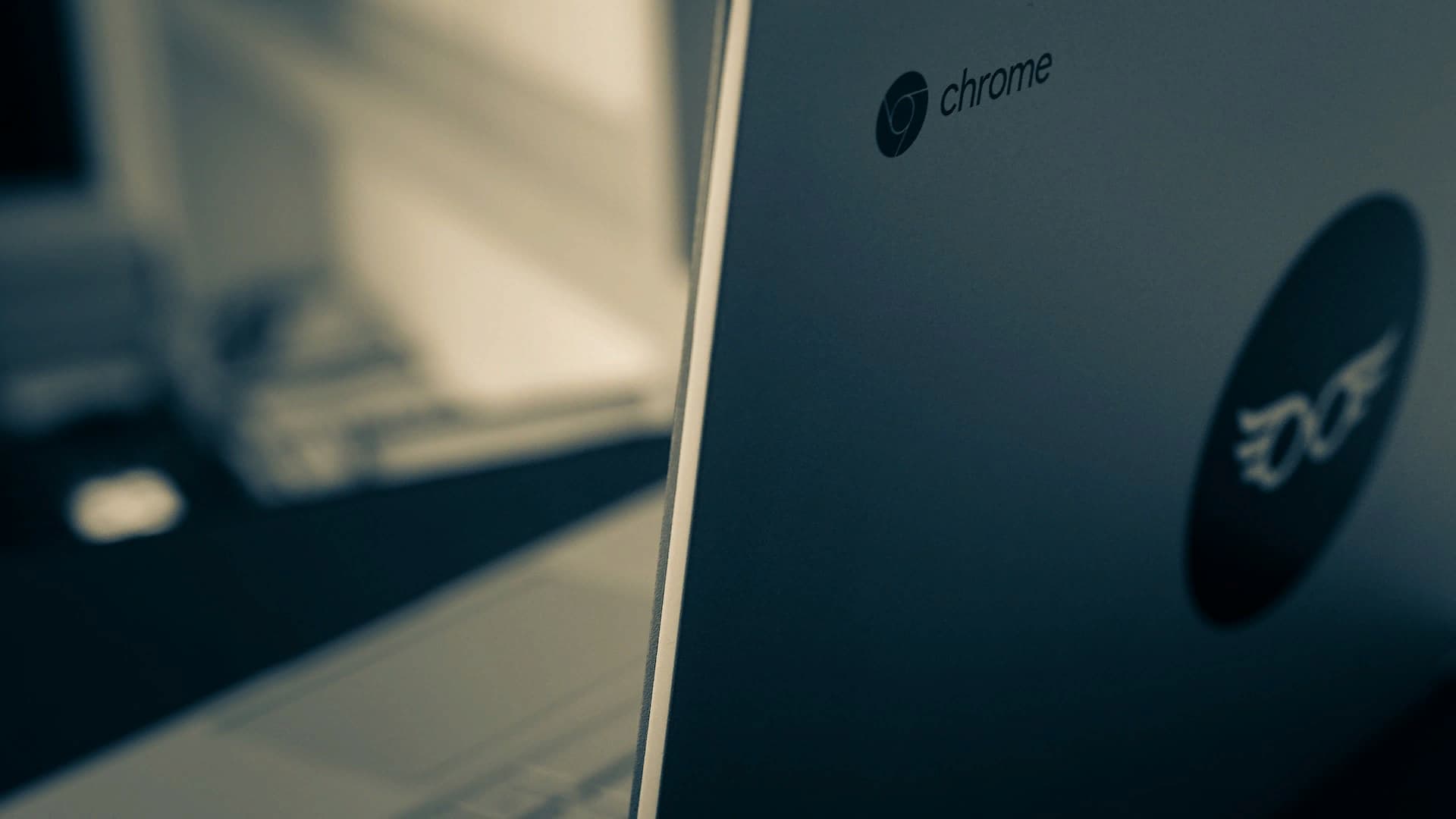Picking the perfect device can be overwhelming, right? Laptops are versatile but can get pricey, and tablets feel too limited for serious work. Enter the Chromebook: a lightweight, affordable option that’s been turning heads since its debut.
While it’s not for everyone, the Chromebook has become a favorite for many—thanks to its speed, simplicity, and wallet-friendly price tag. But is it the right fit for you? Let’s dive into the pros and cons to help you decide.

What Makes a Chromebook Stand Out?
The Basics of a Chromebook
First things first, what’s a Chromebook? Think of it as a laptop, but simpler. It runs on Chrome OS, Google’s operating system that’s heavily focused on internet use. Instead of the traditional Windows or macOS setup, a Chromebook is built around Google Chrome—the web browser you probably use every day.
It’s designed for online tasks, with apps and files stored in the cloud instead of on the device itself.
From Netbook to Superstar
When Chromebooks first launched in 2011, critics weren’t impressed. They looked like budget netbooks with limited functionality. Fast forward a decade, and Chromebooks have found their groove.
They’re dominating U.S. classrooms and even outselling MacBooks. It’s proof that they’re no longer just cheap alternatives—they’ve become a practical choice for many.
The Pros of Chromebooks: Lightweight, Fast, and Cost-Effective
Affordable and Easy on Your Budget
Chromebooks are great for saving money. You can snag a decent one for under $300, making it an attractive option for students or anyone watching their spending. Plus, you’ll avoid expensive software licenses because most of what you need is free or web-based. A win-win for your wallet!
Fast, Secure, and Simple
If waiting for your device to boot up drives you crazy, you’ll love Chromebooks. Many can get you online in seconds. Chrome OS updates automatically, so you’re always running the latest security features without lifting a finger. And because it’s designed to run web apps, there’s less clutter and fewer chances for things to go wrong.
Perfect for Everyday Tasks
Do you use Google Docs, Gmail, or YouTube a lot? Chromebooks are made for that kind of work. They’re ideal for surfing the web, sending emails, or even joining Zoom calls. Plus, with built-in Google Drive integration, saving and accessing your files is a breeze.
Lightweight and Portable
Most Chromebooks are slim and lightweight, which makes them easy to carry around. Whether you’re a student dashing between classes or someone who works in coffee shops, portability is a big plus.
Minimal Maintenance, Maximum Ease
Hate dealing with updates, antivirus software, or complicated settings? Chromebooks handle all of that for you. They’re built to be simple, so even the least tech-savvy users can navigate them with ease.
The Cons of Chromebooks: Limitations You Should Know
Limited Offline Use
Chromebooks rely heavily on the internet. Sure, some apps like Google Docs can work offline, but most tasks require a connection. If you’re often without Wi-Fi, this could be a dealbreaker.
Not Built for Gaming or Multimedia Power
If you’re into high-end gaming or professional video editing, a Chromebook isn’t for you. It can handle Android games and basic editing apps, but don’t expect it to run resource-heavy software like Adobe Premiere or Call of Duty.
Restricted Software Options
One of the biggest downsides is the lack of compatibility with traditional software. Programs like Photoshop, Microsoft Office (the full version), or specialized apps aren’t available. Instead, you’ll need to rely on web-based alternatives—and they’re not always as robust.
Limited Peripheral Support
Need to hook up a printer, CD/DVD drive, or some other gadget? Chromebooks aren’t always compatible with external devices. While wireless printers work with Google Cloud Print, older peripherals might not.
Short-Term Longevity
Chromebooks are built for now, not forever. They have an expiration date for software support (usually around 5-8 years), so they might not last as long as a traditional laptop.
| Pros |
Cons |
|---|---|
| Affordability: Chromebooks are affordable, with most models priced under $300. Performance: Fast boot time, automatic security updates, and user-friendly. Ease of Use: Simple to use with minimal maintenance. Google App Integration: Excellent for Google apps like Docs, Drive, and Gmail. Portability: Light and compact, easy to carry around. Low Maintenance: Automatic updates and security features, no need for antivirus software. |
Limited Offline Use: Many tasks require an internet connection to function. Gaming and Multimedia: Not suitable for high-end gaming or professional video editing. Software Compatibility: Lack of compatibility with traditional software like Photoshop. Peripheral Support: Limited compatibility with older peripherals and devices. Short-Term Longevity: Software support typically lasts for 5-8 years. Offline Functionality: Limited to basic tasks when not connected to Wi-Fi. |
Who Should (and Shouldn’t) Consider a Chromebook?
A Great Fit If You…
- Live online. If your day revolves around browsing, emailing, streaming, or using Google apps, a Chromebook is perfect.
- Want something simple. It’s user-friendly, with no complicated updates or settings to worry about.
- Are on a budget. Affordable pricing and free tools make Chromebooks a great deal.
- Need something portable. Lightweight and durable, they’re ideal for students and travelers.
Think Twice If You…
- Work offline. Without Wi-Fi, a Chromebook’s capabilities drop significantly.
- Rely on specialized software. If your job needs tools like Photoshop or AutoCAD, you’ll need a more traditional laptop.
- Are a gamer or creative pro. Chromebooks can’t handle resource-heavy programs or high-end gaming.
- Need extensive peripheral use. If you rely on older external devices, compatibility might be an issue.
Is a Chromebook Right for You?
Choosing a Chromebook depends on what you need from your device. If you’re after something simple, affordable, and built for online tasks, it’s a fantastic choice. But if you need advanced software or offline functionality, you might want to explore other options.
Conclusion: Making the Right Decision
Chromebooks are lightweight, speedy, and budget-friendly, making them ideal for casual users, students, or anyone who spends most of their time online. However, they’re not the best option for gamers, creative professionals, or people who need extensive offline use.
If you want a device that’s easy to use, secure, and perfect for web-based work, a Chromebook could be exactly what you need. But if your work or hobbies demand more power and versatility, you might be better off with a traditional laptop.
Whatever you choose, make sure it fits your lifestyle and needs. After all, the best device is the one that works for you!





